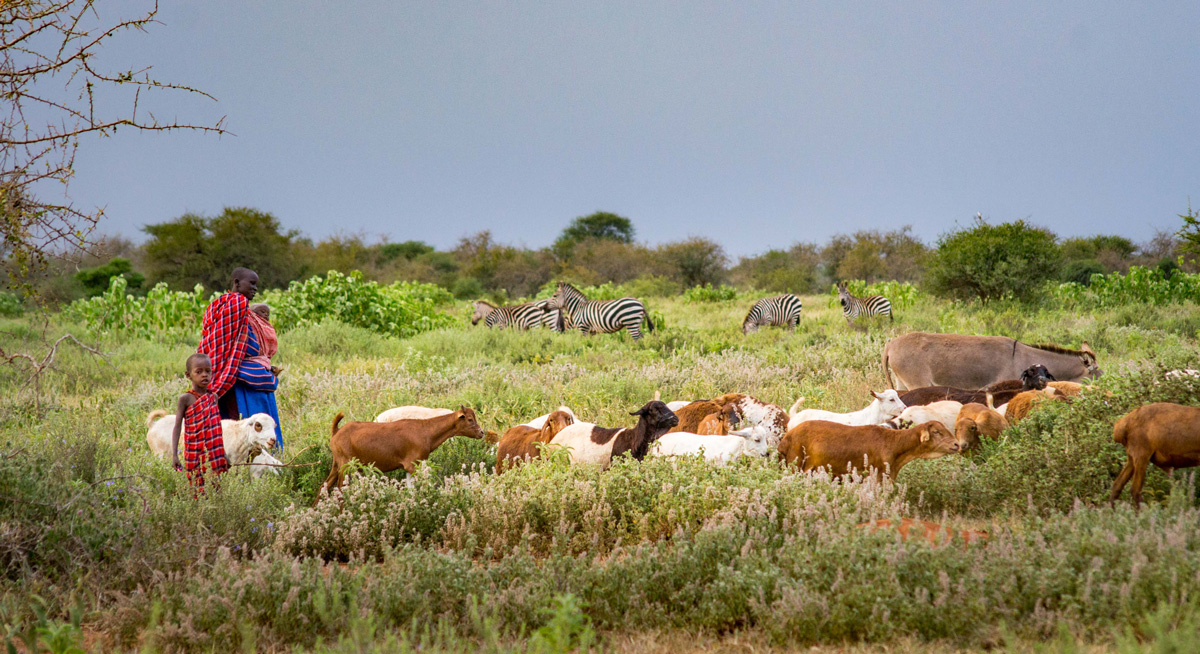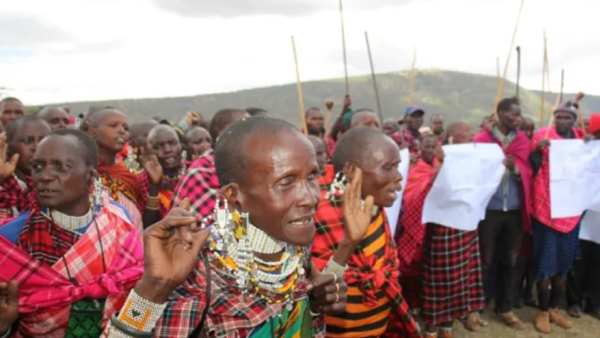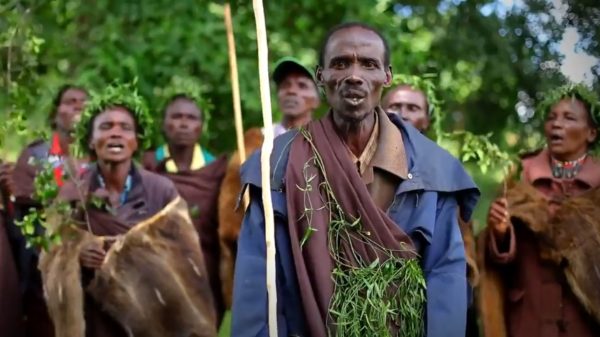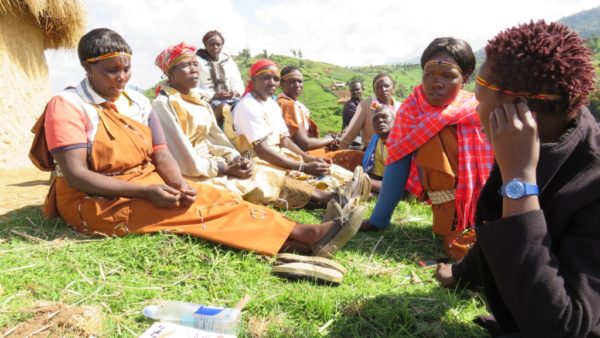On behalf of nearly 150 participants in a pre-Congress workshop co-organised by IMPACT Trust Kenya and the ICCA Consortium, Milka Chepkorir delivered the following speech during the opening plenary of the IUCN Africa Protected Areas Congress on 18 July 2022 in Kigali, Rwanda
First published on 07/20/2022, and last updated on 07/22/2022
Milka Chepkorir presenting during the opening plenary of the Congress. Footage courtesy of IUCN Congress; clip prepared by Ines Hirata/ICCA Consortium.
Dear dignitaries and all protocols observed. As we say in our traditional ways, my elders, fathers, mothers, my brothers and sisters: I greet you all.
I am speaking to you as a Sengwer Indigenous woman from Kenya. We, Indigenous Peoples and local communities, have had many experiences of conservation gone wrong: human right violations, forced evictions, dispossession, displacement, and violence, even to the extent of being killed.
Our experience is not unique. People have lost their hunting and gathering, pastures and fishing areas to State-run and private protected areas and are being branded as enemies of the very wildlife we have always lived in peace with.
This is despite commitments such as the 2003 IUCN World Parks Congress in Durban that agreed to three targets: Free Prior and Informed Consent for the establishment of any new protected areas; meaningful participation by Indigenous Peoples and local communities in the governance of protected areas; and restitution of lands lost by communities to conservation.
Twenty years later, here we are, still talking about the same things. And I’d like to point out that it wasn’t at all easy for us to meet here and obtain a meaningful space to offer our views and proposed solutions for the way forward.
At the same time, we know our world is facing a crisis – we are losing biodiversity at a frightening rate and the climate is changing, making our planet unliveable for us all.
Unfortunately, the conservation response, adopted from colonial times, has been sustained and even refined with increased militarization. These approaches have not only failed to offer a real solution to this crisis, but they have also caused untold harm and trauma to the very citizens which governments should look to as conservators. To say this is only in the past will be a lie. As you are listening to me, it is happening to my brothers and sisters.
We can only conclude that the money provided to African governments and international NGOs in support of these actions has been and continues to be the primary driver for these pervasive, persistent, and often perverse practices.
Nevertheless, on the occasion of the first Africa Protected and Conserved Areas Congress here in Kigali, we hope with our ancestors and future generations that things can and will change.
A group of Indigenous Peoples’ and local community representatives from across Africa met over the last two days [14-15 July]. We call for the following:
- That the ongoing threats, intimidations, violence and violent evictions, land alienation and the criminalization and imprisonment of leaders and community members must stop. Open spaces for genuine deliberations towards inclusive decisions for natural resource management.
- That African governments advance their efforts to recognize, accord and respect the customary collective tenure rights of Indigenous Peoples and local communities.
- That achievement of the proposed 30×30 target should not result in the loss of any Indigenous Peoples’ and local communities’ lands but will, instead, engage, enable, and empower us to be the primary stewards of these areas.
- That Governments respect and implement decisions of the various African Union mechanisms and structures. This respect includes ceasing resistance to the implementation of already awarded resolutions and judgements.
- That conservation and development support should be channelled directly through our traditionally recognized institutions to strengthen and promote the governance systems of communities. That new mechanisms and practices be developed to channel the funding directly to Indigenous Peoples and local communities, in order to address climate change and biodiversity loss at the “point of impact”. Conservation funders need to take the responsibility to end funding to government and actors that do not respect a rights-based approach to conservation and in particular stop enabling the militarisation of conservation.
- That institutional frameworks are created by the “Kigali Call to Action” to enable Indigenous Peoples and local communities to meaningfully engage as partners in the implementation and follow-up of the various calls and declarations, including in future Africa Protected Area Congress meetings and processes.
As we settle down to several days of conversations with one another, may the future of Mother Earth judge us favourably for the actions we take and the declarations we make. Our trauma, our rights, and our wish to be Africa’s primary natural resource conservators should not be, once again, swept under the rug. I urge governments and conservation actors to forge strong and direct partnerships with us to protect and care for our lands, improve biodiversity outcomes and, together, ensure that our world continues to sustain all life.
Thank you.
___________________________________________________________________________
Visit the ICCA Consortium’s event page for more information about our engagement in the IUCN Africa Protected Areas Congress, pre-Congress IPLC workshop, and Africa Regional Assembly, all held back-to-back in July 2022 in Kigali, Rwanda.



